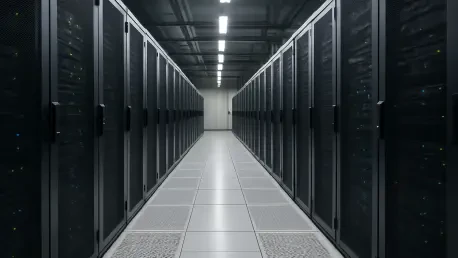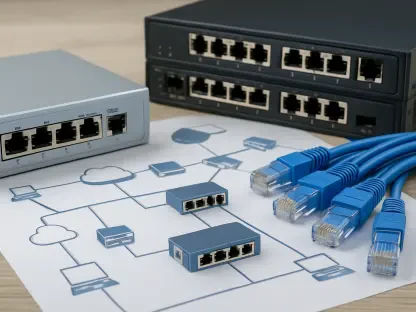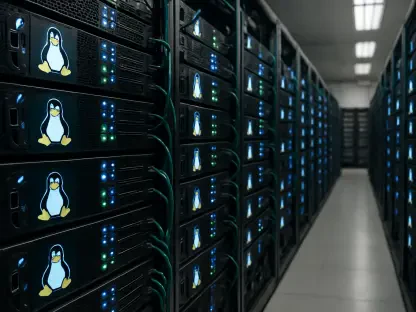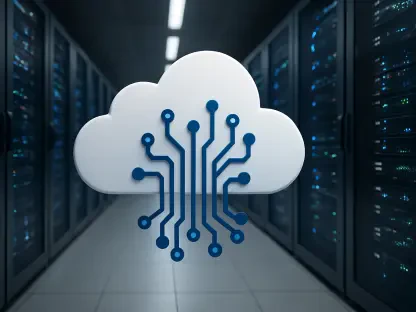I’m thrilled to sit down with Matilda Bailey, a renowned networking specialist whose expertise lies in the cutting-edge realms of cellular, wireless, and next-gen solutions. With a deep understanding of digital infrastructure, Matilda has been a key voice in shaping conversations around data center technologies and trends. Today, we’re diving into her insights on thought leadership platforms like Industry Perspectives at Data Center Knowledge, exploring how they foster dialogue, address industry challenges, and pave the way for innovation as we look toward 2026.
How has a platform like Industry Perspectives at Data Center Knowledge contributed to shaping discussions within the data center community over the past 15 years?
Over the past decade and a half, platforms like Industry Perspectives have been a cornerstone for thought leadership in the digital infrastructure space. They’ve provided a space where professionals can share insights on everything from cooling technologies to sustainable practices. What’s really powerful is how they’ve created a hub for meaningful dialogue, allowing experts to debate and refine ideas that drive the industry forward. It’s not just about publishing articles; it’s about building a community that’s informed and engaged with the real challenges we face.
What sets this platform apart from other publications or resources in the digital infrastructure field?
What makes Industry Perspectives unique is its commitment to being a space for genuine, expert-driven content. Unlike some outlets that might chase trends or headlines, this platform focuses on substance—think of it as a place for deep dives rather than quick soundbites. It prioritizes voices from the field, ensuring that the content reflects real-world experiences and practical solutions, which resonates strongly with data center professionals looking for actionable insights.
As the platform looks toward 2026 with an expanded focus, what kind of evolution do you envision for it?
I think the expansion heading into 2026 is about broadening the scope to include even more diverse perspectives and emerging issues. It’s likely to mean delving deeper into topics like AI integration in data centers, edge computing, and even more nuanced sustainability strategies. The goal seems to be creating a richer tapestry of ideas by pulling in voices from all corners of the industry, whether it’s engineers, policymakers, or innovators pushing the boundaries of what’s possible.
What specific topics or challenges in the data center industry do you think deserve more attention on such platforms?
There are a few areas that I believe need a brighter spotlight. Energy efficiency is always top of mind—how do we power these massive facilities without breaking the bank or the environment? Then there’s the challenge of scalability with AI workloads; we’re seeing unprecedented demand for compute power, and not every facility is ready for that. I’d also love to see more discussion on workforce development—training the next generation of engineers to handle these complex systems is critical and often overlooked.
How do emerging trends like AI-driven data centers or sustainability play into the kind of content you’d expect to see shared on a platform like this?
These trends are absolutely central to the conversation right now. AI-driven data centers, for instance, are redefining how we think about resource allocation and operational efficiency, so sharing case studies or forward-thinking strategies on that front is invaluable. Sustainability, meanwhile, isn’t just a buzzword—it’s a necessity. Content that explores practical ways to reduce carbon footprints or implement renewable energy solutions can inspire real change. I think platforms like this are ideal for sparking ideas on how to balance innovation with responsibility.
The platform has been described as the ‘op-ed page for the digital infrastructure world.’ How would you interpret that analogy in terms of its role and impact?
I see it as a space where opinions and expertise collide in a constructive way. Just like an op-ed page in a newspaper offers a platform for informed viewpoints on critical issues, this platform allows data center professionals to lay out arguments, propose solutions, and even challenge the status quo. The impact lies in its ability to influence how the industry thinks and acts—whether it’s shifting perspectives on a technical approach or rallying support for a new standard. It’s about driving progress through dialogue.
How can a platform ensure that discussions remain meaningful and don’t just turn into hype or noise?
It comes down to curation and authenticity. By focusing on submissions from people who are actually in the trenches—engineers, operators, and researchers—you get content grounded in reality rather than speculation. Encouraging clear, evidence-based arguments over flashy headlines helps too. It’s also about fostering a culture of respect; disagreements are fine, even necessary, but they need to be rooted in a shared goal of advancing the industry, not just scoring points.
What kind of commentary or arguments do you think would really resonate with the data center community right now?
I think anything that tackles the tension between innovation and practicality hits home. For example, a piece arguing for a specific approach to cooling that cuts energy use while maintaining performance would get attention because it addresses a universal pain point. Calls to action around collaboration—say, pushing for industry-wide standards on sustainability—also resonate. People want to read ideas that challenge them to think differently but also offer a clear path forward.
How do you think a platform can balance creating engaging content with avoiding sensationalism or clickbait in this space?
It’s about sticking to what’s real and relevant. Engaging content doesn’t need to be dramatic—it can come from a compelling story or a fresh perspective on a common issue. For instance, a detailed breakdown of a recent data center outage and lessons learned can be just as gripping as any headline-grabbing controversy. The key is prioritizing depth over shock value and ensuring that every piece adds something meaningful to the conversation, whether it’s a new idea or a hard-earned lesson.
What is your forecast for the future of thought leadership in the data center industry as we move toward 2026 and beyond?
I’m optimistic that thought leadership in this space will become even more collaborative and dynamic. As challenges like AI integration, energy demands, and climate goals intensify, I expect platforms to evolve into even stronger hubs for cross-pollination of ideas—bringing together technologists, environmentalists, and business leaders. We’ll likely see more emphasis on data-driven insights and predictive models to guide decision-making. My hope is that these spaces will not only reflect where the industry is but also chart a bold path for where it needs to go.









